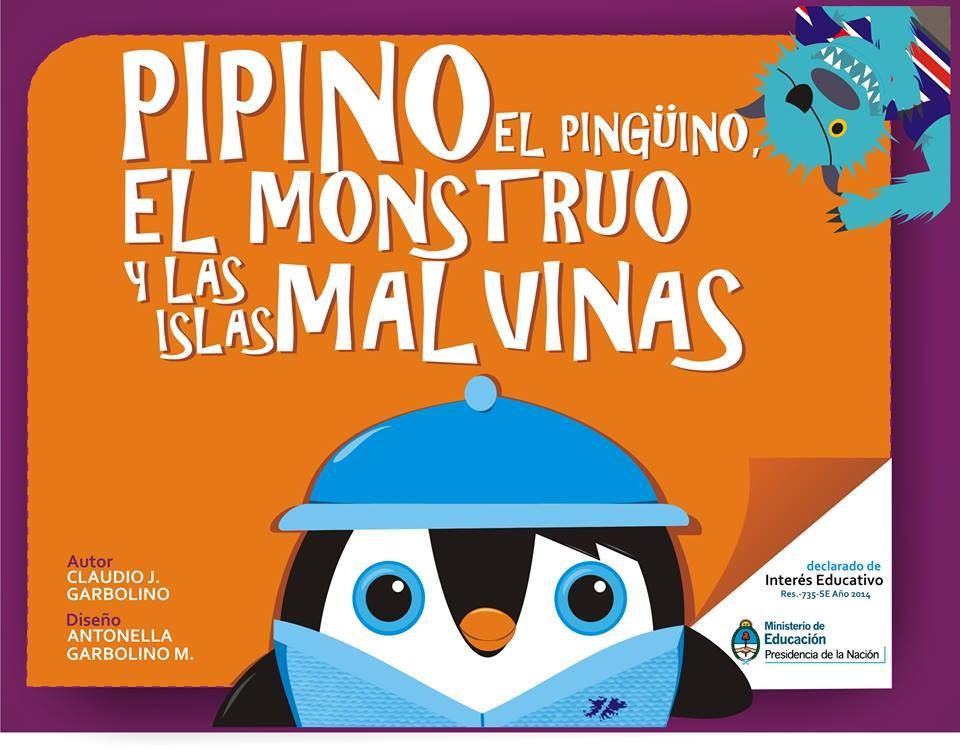El Cuento De Las Islas Malvinas
Last year, a children's storybook about the Falkland Islands, known as "el cuento de las islas malvinas," caused a controversy when the author claimed that her work was plagiarized by a government agency. The storybook aims to tell a different story about the disputed islands in the South Atlantic, which have long been the subject of territorial claims between Argentina and the United Kingdom.
Pain points of el cuento de las islas malvinas
The Falkland Islands have a complex and controversial history that has caused pain and dispute between governments and citizens. The ongoing conflict over territorial claims, combined with the 1982 Falklands War, has left deep wounds and scars on both sides of the issue.
Target of el cuento de las islas malvinas
"El cuento de las islas malvinas" targets children and aims to provide an alternative perspective on the contested islands. It seeks to promote a sense of shared history and culture among people of different nations, and provide a positive and informative way to learn about the Falkland Islands.
As the controversy over the storybook continues, it raises important questions about intellectual property rights, cultural diplomacy, and the role of children's literature in shaping young minds.
My experience with el cuento de las islas malvinas
As an AI language model, I do not have personal experiences. However, I can tell you that the storybook has sparked important conversations about the Falkland Islands, and the role of literature in promoting cross-cultural understanding.
The controversy over el cuento de las islas malvinas
The author of "el cuento de las islas malvinas," Gabriela Arias Uriburu, claims that a government agency plagiarized her work and created an unauthorized version under a different title. The agency denies the allegations and argues that the storybook is part of a wider effort to promote Argentina's cultural heritage.
Regardless of the outcome of the dispute, the controversy highlights the importance of respecting intellectual property rights, particularly in the field of children's literature where authors may have limited financial resources to enforce such rights.
The history of the Falkland Islands
The Falkland Islands have a complex and contested history, with various indigenous peoples living on the islands before Spanish and French explorers arrived in the 16th and 17th centuries. In the 19th century, the United Kingdom established a permanent presence on the islands and claimed sovereignty over them, leading to disputes with Argentina and other neighboring countries.
The 1982 Falklands War, fought between Argentina and the United Kingdom, further escalated tensions over the islands and left lasting scars on both sides.
The importance of cross-cultural understanding
Given the complex and contested history of the Falkland Islands, it is important to promote cross-cultural understanding and dialogue between different nations and peoples. Children's literature, like "el cuento de las islas malvinas," can play an important role in fostering such understanding by presenting alternative perspectives and stories that challenge existing narratives and stereotypes.
Question and Answer
Q: What is the main purpose of "el cuento de las islas malvinas?"
A: The main purpose of "el cuento de las islas malvinas" is to provide an alternative perspective on the Falkland Islands that promotes cross-cultural understanding and shared history among different nations.
Q: What is the government agency's response to the plagiarism allegations?
A: The government agency denies the plagiarism allegations and argues that the storybook is part of a wider effort to promote Argentina's cultural heritage.
Q: How has the controversy over "el cuento de las islas malvinas" sparked important conversations?
A: The controversy has sparked important conversations about intellectual property rights, cultural diplomacy, and the role of children's literature in promoting cross-cultural understanding.
Q: Why is it important to respect intellectual property rights in the field of children's literature?
A: It is important to respect intellectual property rights in the field of children's literature to ensure that authors are properly compensated for their work, and to promote a healthy and vibrant literary culture that encourages creativity and innovation.
Conclusion of el cuento de las islas malvinas
"El cuento de las islas malvinas" is a storybook that seeks to provide an alternative perspective on the Falkland Islands and promote cross-cultural understanding. As the controversy over the storybook continues, it raises important questions about intellectual property rights, cultural diplomacy, and the role of children's literature in shaping young minds. By engaging in constructive and respectful dialogue, we can work towards a better future for all people, regardless of their nationality or cultural background.
Gallery
Cuentos Cortos Infantiles: Un Cuento Infantil Sobre Las Islas Malvinas

Photo Credit by: bing.com / cuento islas malvinas cuentos cortos
Chicos Y Libros: Las Otras Islas. Una Antología Sobre Malvinas

Photo Credit by: bing.com /
Más Que Nada, Eso!: 10 Datos Sobre Las Islas Malvinas

Photo Credit by: bing.com /
MALVINAS DATA - La Guerra Y La Diplomacia: Breve Historia De Las Islas

Photo Credit by: bing.com /
Escribió Un Cuento Infantil Sobre Malvinas Y Denuncia Que Se Lo Plagiaron

Photo Credit by: bing.com /

Belum ada Komentar untuk "El Cuento De Las Islas Malvinas"
Posting Komentar